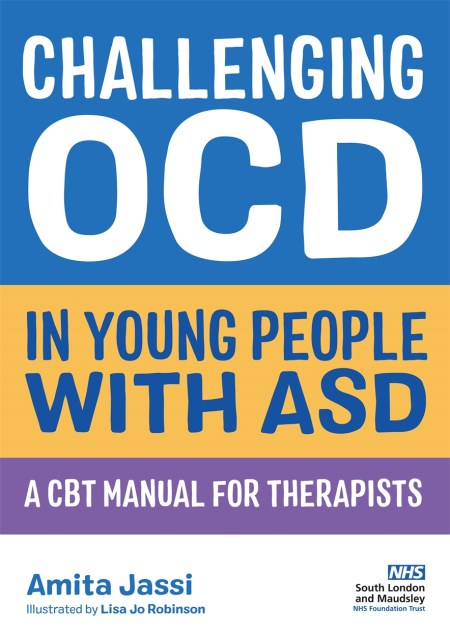People with autism are at a higher risk of developing OCD, with research showing that up to 37% of young people with ASD also have comorbid OCD. This manual offers a step-by-step guide to an evidence-based treatment based on CBT and exposure and response prevention techniques that is specifically designed to suit the needs of young people with ASD.
Providing an adaptable 20-session programme for professionals treating young people with OCD and ASD, this book from the national specialist OCD Service at the Maudsley Hospital provides a complete guide for treatment, from introducing what OCD is through to relapse prevention strategies.
Designed to be used in conjunction with the workbook, Challenge Your OCD!: A CBT Workbook for Young People with ASD.
Providing an adaptable 20-session programme for professionals treating young people with OCD and ASD, this book from the national specialist OCD Service at the Maudsley Hospital provides a complete guide for treatment, from introducing what OCD is through to relapse prevention strategies.
Designed to be used in conjunction with the workbook, Challenge Your OCD!: A CBT Workbook for Young People with ASD.
Newsletter Signup
By clicking ‘Sign Up,’ I acknowledge that I have read and agree to Hachette Book Group’s Privacy Policy and Terms of Use
Reviews
This is an excellent, practical guide written with children, families and clinicians in mind. Dr Jassi has created an accessible workbook and companion manual which will be essential resources for clinicians working with OCD and autism. Step by step session plans will guide novice and more experienced therapists to confidently deliver evidence-based treatment with adaptations for ASD developed through clinical experience.
Dr. Jassi has filled a notable gap in the field by authoring an evidence-based CBT protocol for treating OCD in young people with ASD. The user-friendly and well-written manual and accompanying handbook promise to significantly and positively impact the way in which clinicians care for individuals with ASD and comorbid OCD.
